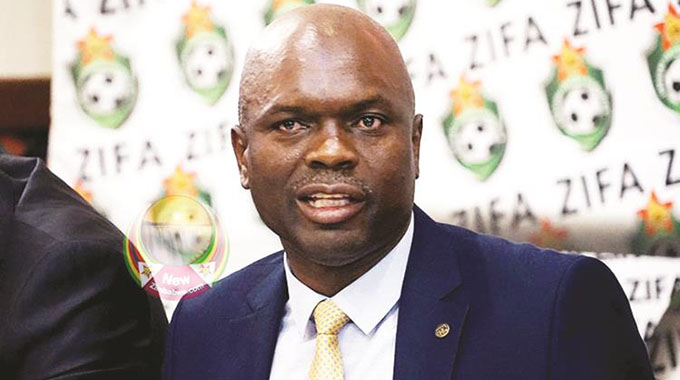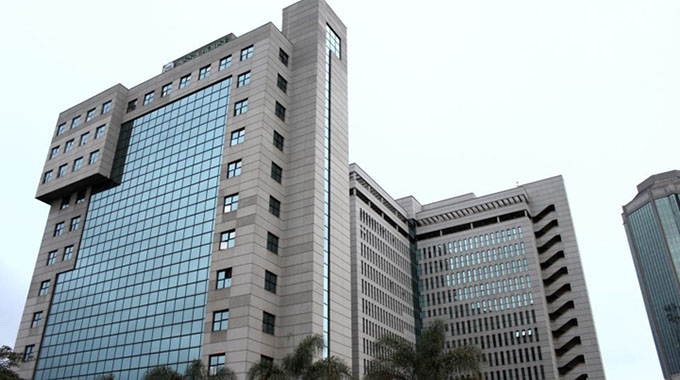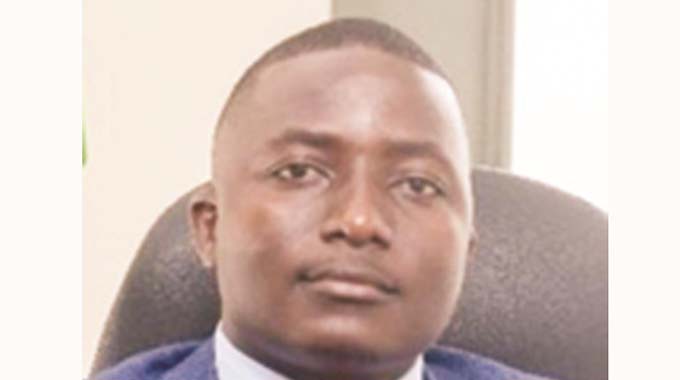African football stuck in quagmire

Robson Sharuko Senior Sports Editor
AFRICAN football leaders, including ZIFA boss Felton Kamambo, have been given a frank and brutal assessment of the state of the game on the continent by FIFA — the sport is stuck in a quagmire.
Poor infrastructure, questionable refereeing, a biennial AFCON finals that generate only a slice of the financial proceeds which the Euros bring in and lack of transparency in the way funds are used have all contributed to the lack of progress.
While the African game remains rich in talent, FIFA president Gianni Infantino feels that its natural human wealth hasn’t been complemented by structures and support staff to convert it into the success story it should be right now.
This has paralysed the continent’s national teams, making them unable to compete on a regular basis with their counterparts from Europe or South America despite Africa boasting some of football’s best talent.
No African side has won the World Cup, as predicted by Brazilian legend Pele that such an event would occur before the end of the last millennium, with the best performance from the continent’s representatives being a place in the quarter-finals in 1990, 2002 and 2010.
Ten years after Ghana’s Black Stars came within a successful last-gasp penalty conversion from becoming the first African team to reach the semi-finals of the World Cup, things haven’t improved as expected, and at the last World Cup in Russia, all the continent’s representatives fell at the first hurdle.
The Black Stars failed to build on that promise, and at the next World Cup in Brazil in 2014, they finished bottom of their group, with only one point in three matches after chaos destroyed their camp amid running battles with authorities over bonus issues, forcing the government to fly a plane carrying US$3 million in cash towards their welfare. It was the same story with Cameroon’s Indomitable Lions, who after capturing the imagination of the world at Italia ’90, where they went all the way to the quarter-finals, they were humiliated at the next World Cup in the United States, finishing bottom of their group with just a point.
A 1-6 thrashing at the hands of Russia highlighted just how the Indomitable Lions had fallen from grace in just four years.
The lack of infrastructure for the game to prosper in Africa has also been highlighted by FIFA as a major contributor to the stagnation of the game on the continent.
Zimbabwe has seen the National Sports Stadium being barred from hosting international football matches because CAF inspectors believe the changing rooms should be renovated, the bumpy playing surface — which has resulted in a number of injuries for the Warriors — should be improved and the media tribune should be revamped.
There are also concerns over how fans can be evacuated onto the field of play in the event of disturbances on the stands.
Rufaro and Mandava also failed the test, and only Barbourfields can host international matches, although in the event such a game is played under the floodlights, the Warriors would be forced to play outside the country because the lights at the stadium have also been condemned.
FIFA want all that changed, with the world football controlling body saying they want to build one modern football stadium in each of the African countries which did not have such facilities, as part of their investment into the game on the continent.
Infantino told African football leaders drawn from the CAF executive committee and the leadership of each of the football associations on the continent, the game on the continent had stagnated and measures were needed to arrest the slide.
He was speaking at the historic seminar focused on the development of competitions and infrastructure in African football, which was held in Rabat, Morocco, over the weekend.
“Our objective must be to project African football to the top of the world,” Infantino said.
“We have been talking about the development of African football for many years.
“Let us show the world what we can do. This day is special, it’s the start of a new chapter for African football.
“Pelé once said that an African team would win the FIFA World Cup, but this hasn’t happened and it seems we are not making any progress. Today must be the day we turn that page.”
Infantino unveiled a joint FIFA/CAF strategy for the elevation of African football focused on three key pillars — refereeing, investment mobilisation and competition development.
“Referees have to be above and beyond doubt, and to do that, we have to protect them,” Infantino said.
“We will take 20 of the best African FIFA referees, professionalise them, and give them permanent, professional contracts.
“They should be the guardians of the rules of our game and we must protect them, make them totally autonomous.”
“We are elaborating a proposal to mobilise US$1 billion to build, at least, one top stadium in the countries of each of FIFA and CAF’s 54 member associations.”
“In the countries where there is already at least one very good stadium, the investments can be done in other infrastructures.”
Infantino also spoke about changes which needed to be done to breathe life into football on the continent.
“In relation to competition development, FIFA will seek a range of new initiatives — the creation of a world nations league for women’s football, more frequent youth world championships, more youth competition categories, a re-positioning of the African Cup of Nations to be played every four years and the creation of a new pan-African club competition,’’ FIFA said in their statement.
“The new pan-African club competition proposed by the FIFA president would comprise 20 permanent member clubs and would be supported by additional clubs that qualify via regional competitions.”
“The permanent member clubs would be urged to provide an investment of US$20 million to the project annually over five years, taking their total investment to US$100 million.”
“They would also have to meet other participation criteria such as investment in youth and women’s football. In this way, the competition would have the potential to generate a revenue of US$3 billion over a five-year cycle and would also create the conditions for African football to be able to retain some of most talented players in the continent.’’
Infantino said changes have to be implemented to ensure the game would be revived on the continent.
“We have to reflect about how we can revolutionise African football,” he said.
“I want to create a real pan-African league that would feature 20-24 clubs with a maximum of maybe two clubs per country that would still play in their national leagues, but that would play during the year so we can really crown the club champions of Africa. The Africa Cup of Nations generates 20 times less than the Euros.
“Having (an AFCON) every two years, is that good at the commercial level? Has this developed the infrastructure? Think about spending it every four years.’’








Comments